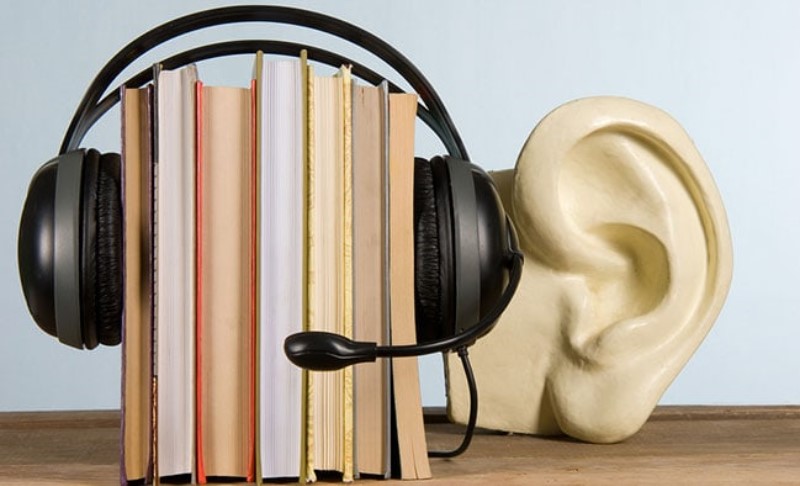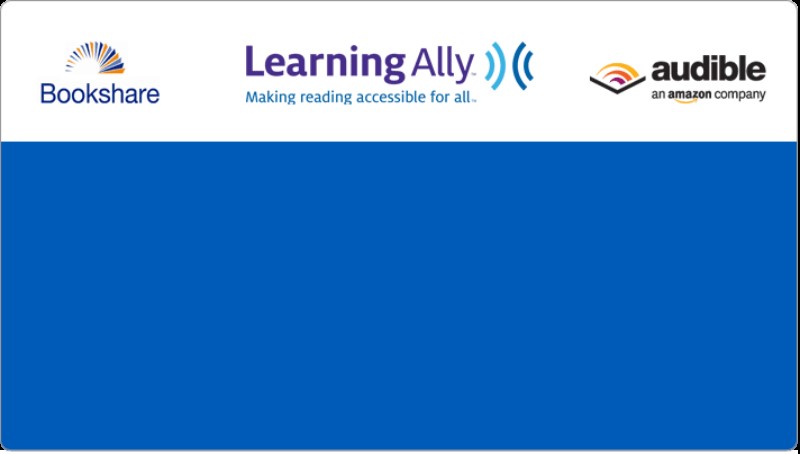The introduction to this table of contents highlights the importance of audio books for individuals who are blind or dyslexic. It sets the tone for the rest of the table of contents by emphasizing the many benefits audio books can provide for those who struggle with traditional print material.
These benefits are not only numerous, but they are also incredibly important. For blind individuals, audio books can be the key to accessing education and literature that might otherwise be inaccessible. For someone struggling with dyslexia, audio books offer an opportunity to experience the same content as others without the frustration and difficulty that can come with traditional reading.
The introduction also sets the stage for the subsequent sections of the table of contents, outlining topics such as free audio book resources, organizations that provide audio books, accessibility options for dyslexic individuals and tips for listening. Together, these sections provide a comprehensive guide to everything one might need to know about audio books for the blind and dyslexic. It is clear from the introduction that this is an important topic that deserves attention and action, and the rest of the sections only reinforce that message.
Explanation on what audio books are

An audiobook is a recorded narration of a book or other literary work. It can be downloaded or purchased in physical form and can be listened to on a variety of devices, including smartphones, tablets, and dedicated audiobook players. Audiobooks provide an alternative way for individuals to consume literature, particularly those that may have difficulty reading text due to visual impairments or dyslexia. They offer a convenient way for individuals to enjoy a book while commuting, exercising, or performing other tasks that require the use of their hands. In this section, we will explore the definition of audiobooks and their importance for those with disabilities.
Benefits of Audio Books for Blind and Dyslexic Individuals
Audio books offer a multitude of benefits to individuals who are blind or dyslexic. These individuals face unique challenges when it comes to reading printed materials, and audio books offer an alternative way to access information and entertainment.
For blind individuals, audio books provide a way to enjoy literature, learn new skills, and stay up-to-date on current events. Audio books are often more accessible than braille or large print materials, making it easier for blind individuals to discover new books and stay engaged with their interests.
Dyslexic individuals also benefit from audio books, as it allows them to access the same content as other individuals without the added difficulties of reading printed materials. Audio books can reduce the stress and anxiety that comes with reading difficulties, and can help dyslexic individuals to have more confidence in their abilities.
Overall, audio books offer a valuable resource for individuals who are blind or dyslexic, and the organizations that provide free audio books play an important role in making these resources accessible to everyone.
Accessing Free Audio Books for the Blind
For blind individuals, accessing free audio books can be a challenge. However, there are several resources available to help make this process easier. The National Library Service (NLS) provides free audio books and playback equipment to eligible individuals with visual or physical impairments. Additionally, Bookshare offers a large selection of accessible books, including audio books, to individuals with qualifying disabilities. Other resources, such as Learning Ally and the American Printing House for the Blind, also offer free audio books and other accessible materials. By taking advantage of these free resources, blind individuals can enjoy the benefits of audio books without financial barriers.
Free Audio Book Resources for Blind Individuals
For blind individuals, access to free audio book resources can be incredibly helpful in gaining access to literature. There are many resources available that provide audio books completely free of charge, allowing individuals to explore a wide range of books and stories. Some of the best resources include organizations such as the National Library Service for the Blind and Physically Handicapped, Learning Ally, and Bookshare. These organizations work to provide a wide range of audio book options for free, making it easier than ever for blind individuals to access literature and broaden their knowledge. Additionally, many libraries now offer digital audio books that can be checked out online, making it even easier for individuals to access this valuable resource. For anyone who is blind or has difficulty reading, these resources can be incredibly valuable in gaining access to literature and enriching their lives.
Description of Organizations and Their Roles in Providing Audio Books for the Blind
There are several organizations dedicated to providing audio books for the blind. The National Library Service for the Blind and Print Disabled (NLS) is a free library program that provides Braille and audio materials to eligible borrowers in the United States. Another organization, Bookshare, offers accessible e-books for people with print disabilities, including the blind.
Other organizations that provide audio books for the blind include Learning Ally, a nonprofit focused on providing educational access to students with print disabilities, and the American Council of the Blind, which offers a variety of resources and advocacy for the blind community.
These organizations play important roles in ensuring that blind individuals have access to literature and educational materials, which is essential for their personal growth and educational success. It is important to support these organizations through donations and volunteer work to continue their valuable work.
Accessibility options for dyslexic individuals
For dyslexic individuals, audio books can be an incredibly useful resource for accessing information. However, there are also other accessibility options to consider. These may include font styles and sizes, background color, and spacing. Some word processing programs and e-book readers offer dyslexic-friendly options that can make reading easier. Additionally, dyslexic individuals may benefit from text-to-speech software that can read digital content aloud. It’s important to explore all options to find what works best for each individual. Check out the free audio book resources for dyslexic individuals and descriptions of organizations and their roles in providing these resources.
Free audio book resources for dyslexic individuals
For dyslexic individuals who struggle with reading, audio books can offer a wonderful alternative. There are a number of organizations that provide free audio books for dyslexic individuals, allowing them to enjoy books and stories without the frustration and difficulty of reading. Some great free audio book resources for dyslexic individuals include Learning Ally, Bookshare, and RNIB Library. These organizations offer a wide range of titles in various genres, so there’s sure to be something to suit every taste. Additionally, they often offer features such as speed control, bookmarking, and highlighting to make the listening experience more tailored to individual needs and preferences. If you or someone you know is dyslexic and looking for resources for free audio books, be sure to check out these organizations and discover all that they can offer.
Descriptions of organizations and their roles in providing audio books for dyslexic individuals
This section of the table of contents highlights organizations that provide audio books for dyslexic individuals. These organizations play a crucial role in ensuring that those with dyslexia can access the same information that others can, despite their reading difficulties. By partnering with publishers and authors, many of these organizations ensure that a wide range of books are available to dyslexic individuals. Some even offer resources beyond audio books, such as assistive technology and tutoring services. Through their efforts, these organizations help to enhance learning opportunities and improve quality of life for individuals with dyslexia.
Tips for listening to audio books for the blind and dyslexic
When listening to audio books as a blind or dyslexic individual, there are a few tips that can enhance the experience:
– Choose a narration speed that works best for you. Some people prefer a slower narration, while others prefer a faster pace.
– Use headphones to block out any distractions and fully immerse yourself in the story.
– Take breaks if needed to avoid fatigue and allow for better retention of information.
– If possible, read a physical copy of the book along with the audio book to aid in comprehension.
– Utilize accessibility options such as text-to-speech or the ability to adjust font size for dyslexic individuals.
By following these tips, audio books can be a valuable tool for blind and dyslexic individuals to access literature and gain knowledge.
Famous audio books narrated for the blind
Audio books are a valuable resource for people with visual impairments or reading disabilities. There are many classic and popular books available in audio format that are narrated specifically for blind individuals. Some examples include “To Kill a Mockingbird” by Harper Lee, “The Great Gatsby” by F. Scott Fitzgerald, and “Harry Potter” series by J.K. Rowling. These books allow people with vision impairments to enjoy the same literature as those without disabilities. Organizations that provide audio books for the blind often have a wide variety of titles available for free or at a low cost. Donating to these organizations can help ensure that more books are available in audio format for those who need them.
How to Donate to Organizations Providing Audio Books for Blind and Dyslexic Individuals
Donating to organizations that provide audio books for blind and dyslexic individuals is a great way to support the community. There are several ways to donate, such as making a monetary donation, donating used audio books or equipment, or volunteering your time.
When making a monetary donation, be sure to research the organization and ensure that they are a reputable and legitimate charity. Many organizations accept donations through their website or by mail.
Donating used audio books or equipment can also be a great way to support the community. Check with local organizations to see if they accept donations and what specific materials they are in need of.
Volunteering your time can also make a big impact. Many organizations rely on volunteers to help with tasks such as recording, editing, or distributing audio books. Contact organizations to see how you can help.
Overall, donating to organizations that provide audio books for blind and dyslexic individuals can make a tremendous difference in the lives of those who benefit from these resources.
Conclusion
In conclusion, audio books provide incredible benefits and accessibility options for individuals with visual impairments and dyslexia. With so many free resources available, it’s important to take advantage of the opportunities to access literature and information through audio books. Organizations play a crucial role in providing these resources and donations to these organizations can help ensure continued access to audio books for those who need them. By utilizing these tips and resources, individuals can enhance their reading experience and overall quality of life.

